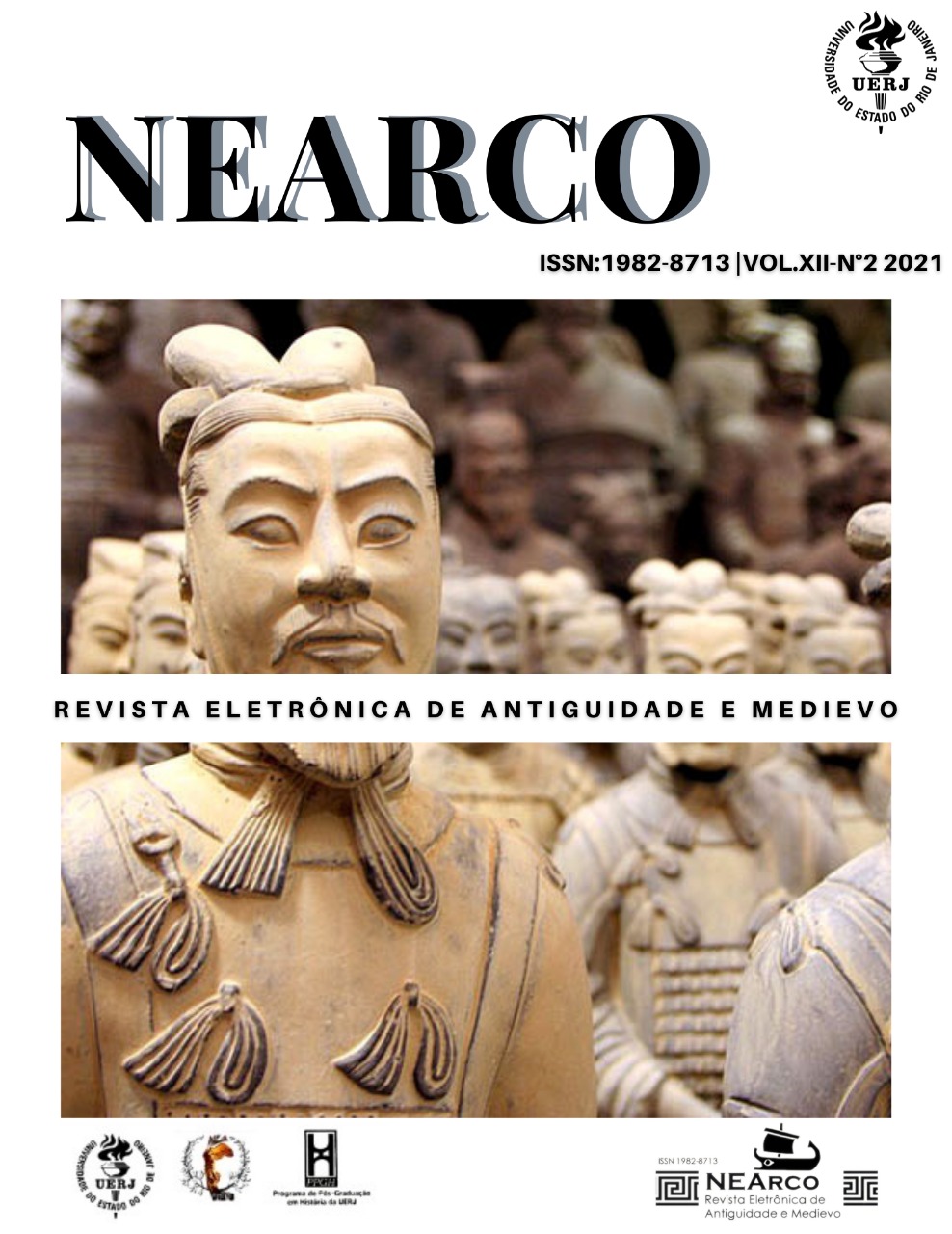Uma “Guerra Total”? Repensando a ideologia miitar no Livro do Lorde Shang
DOI:
https://doi.org/10.12957/nearco.2020.57703Palabras clave:
Exércitos massivos. Ideologia militar. Estados Combatentes.Resumen
O Livro do Senhor Shang, comumente identificado como uma das principais obras da chamada escola legalista, também representa um importante - e muito negligenciado - tratado na história do pensamento militar chinês. Além de recomendações específicas sobre a guerra defensiva e ofensiva, o livro apresenta uma visão coerente do Estado que deve reestruturar suas políticas socioeconômicas e culturais para transformar cada homem em um soldado valente. O livro resume a ideologia da “guerra total”, em que as diferenças entre os assuntos civis e militares são confusas. A sociedade está profundamente militarizada; o exército, por sua vez, está profundamente burocratizado. Meu artigo explora o pensamento militar do Livro de Lord Shang, enfocando suas visões de mobilização, de doutrinação dos soldados, de disciplina militar, de regras de engajamento militar e de comando militar. Além disso, lido com a questão do motivo pelo qual a ideologia militar do livro foi praticamente negligenciada após o fim da dinastia Han.
Descargas
Descargas
Publicado
Cómo citar
Número
Sección
Licencia
Autores que publicam na NEARCO: Revista Eletrônica de Antiguidade e Medievo concordam com os seguintes termos:
a) Os autores mantém os direitos autorais e concedem à revista o direito de primeira publicação, com o trabalho simultaneamente licenciado sob a Licença Creative Commons Attribution que permite o compartilhamento do trabalho com reconhecimento da autoria e publicação inicial nesta revista
b) Os autores têm autorização para assumir contratos adicionais separadamente, para distribuição não-exclusiva da versão do trabalho publicada nesta revista (ex.: publicar em repositório institucional ou como capítulo de livro), com reconhecimento de autoria e publicação inicial nesta revista.
c) Os autores têm permissão e são estimulados a publicar e distribuir seu trabalho online (ex.: em repositórios institucionais ou na sua página pessoal) a qualquer ponto antes ou durante o processo editorial, já que isso pode gerar alterações produtivas, bem como aumentar o impacto e a citação do trabalho publicado (Veja O Efeito do Acesso Livre).

Este obra está licenciado com uma Licença Creative Commons Atribuição-NãoComercial 4.0 Internacional.









